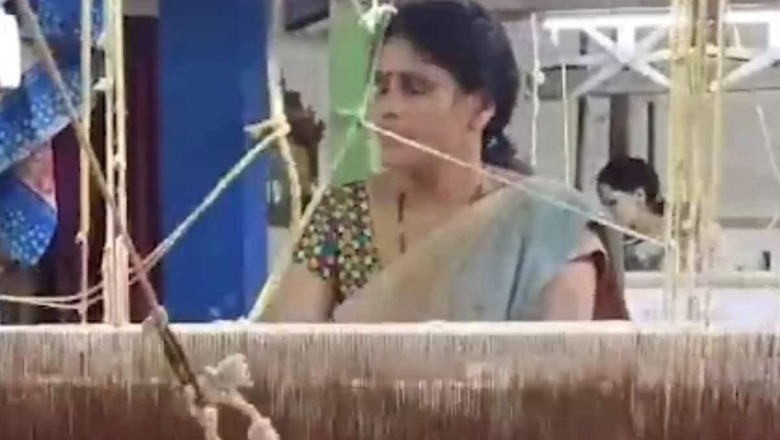
views
In the modern era, there’s a growing emphasis on natural substances due to their lack of harm and contribution to ecological balance. The trend encourages the use of natural foods, beverages, products, and even clothing. Clothes dyed with natural substances are preferred over chemically dyed ones. Natural dyes, derived from animals, plants, or minerals, are gaining popularity. Most organic dye production involves natural sources like trees, flowers, vegetables, and fungi. Historically, people used whatever materials were available to create dyes. Natural dyes stand out for being biodegradable, non-toxic, and non-allergenic to human skin. In contrast, synthetic dyes, made with chemicals, pose environmental and skin-related risks.
In a progressive move towards eco-friendly practices, the Talipady Primary Weavers’ Service Cooperative Society Ltd. in Kinnigoli, Dakshina Kannada, is embracing the art of naturally dyeing clothes. This cooperative society operates under the guidance of the non-governmental organization Kadike Trust and specializes in producing Udupi sarees using arecanut chogaru as a natural dye. Arecanut chogaru is a liquid extracted from heated arecanut nuts, lending a distinct natural hue to the sarees.
The society’s focus on Udupi sarees promotes the utilization of natural sources. The sarees are dyed using processed wild almond tree leaves and the root of manjistha, a traditional medicinal plant. Mamatha Rai, President of the Kadike Trust, explains that these Udupi sarees not only align with eco-friendliness but also provide improved remuneration for the weavers involved in their creation.
The journey of Udupi sarees and natural dyeing started in 2018 when the Kadike Trust initiated the effort. Dyeing courses were meticulously conducted to equip the artisans with the skills needed for this unique endeavor. Notably, Mamies School House of Natural Dye Education in Canada extended scholarships to the Kadike Trust, bolstering their natural dye education efforts.
This initiative reflects a shift towards sustainable and environmentally-conscious fashion. By incorporating arecanut chogaru and other natural elements into the dyeing process, the Talipady Primary Weavers’ Service Cooperative Society is tapping into age-old techniques that prioritize both quality and ethics. These Udupi sarees serve as a testament to the potential of harmonizing tradition and innovation in the textile industry. The resurgence of natural dyeing methods demonstrates a commitment to preserving traditional practices while supporting the livelihoods of skilled weavers.

















Comments
0 comment